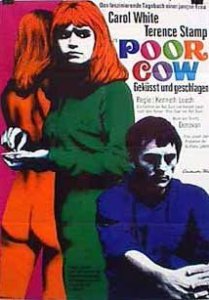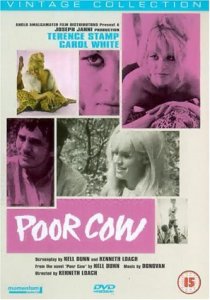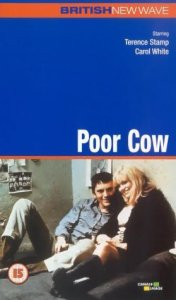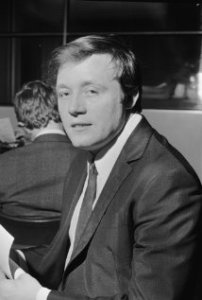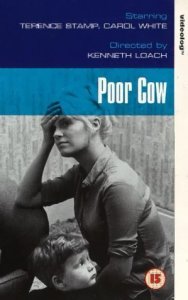Poor Cow ***** (1967, Carol White, Terence Stamp, John Bindon, Kate Williams, Queenie Watts) – Classic Movie Review 2268
Co-writer/director Ken Loach makes his ground-breaking and eye-catching feature movie début filming Nell Dunn’s novel in 1967. Restored and re-released in 2016, it comes up devastatingly fresh – incisive, poignant and funny too. Carol White triumphs in her stunning star-making role as Joy, a young mum with a new-born child making a series of bad choices as she struggles to survive among Swinging London’s criminal classes.
White is heart-breakingly touching and appealing as the troubled heroine who marries tough, abusive crook Tom (John Bindon) and has his kid at a young age, but alas he can’t stop his penchant for domestic violence. And Joy is in love with Tom’s handsome buddy Dave (Terence Stamp), another thief.
After her husband is put in jail, the ironically named Joy and her young child are thrown out of their rented accommodation and become homeless. She takes up with Dave, who gives her a short period blissful happiness, but then he also ends up in a long stretch in prison. She visits him regularly in prison, says she loves him, she’ll wait for him but he doesn’t believe or trust her, and rightly, because she’s sleeping around.
When her son goes missing, she goes frantic, and eventually, with push coming to shove, she has to try to re-evaluate her priorities.
Bindon and Stamp are both ideal, too, etching memorable characters, and Kate Williams is also very striking in support as Beryl, Joy’s lusty barmaid pal at the pub where she works, and Queenie Watts is outstanding as Joy’s feisty Aunt Emm, whom she goes to live with.
The gritty kitchen sink realism story of London lowlifes commands the attention and there is still an incredibly attractive freshness to the film through its obvious sincerity and careful observation, as well as all the conviction and truth that arise from its infectious air of improvisation and spontaneity so carefully encouraged and fostered by Loach. Stamp confirms that the film was mostly improvised and that first takes were used. Two cameras filmed simultaneously to capture the spontaneity of the performances.
An important ingredient of the movie is the music soundtrack. Donovan sings his songs ‘Be Not Too Hard’, ‘Colours’ and ‘Poor Love’, and Loach uses a lot of pop music of era very effectively, now evocatively. Stamp also sings ‘Colours’.
Malcolm McDowell (24) made his début in a small role in one scene, though his part was cut from the release print. It is the last movie of prolific character actor Wally Patch (playing a customer in the pub), who made 180 films from 1927. Footage of this film was used in Stamp’s 1999 movie The Limey for flashbacks involving the main character.
Also in the cast are Geraldine Sherman, James Beckett, Billy Murray, Wally Patch, Laurie Asprey, Hilda Barry, Ray Barron and Ken Campbell.
Looking back in 2015, Stamp complains that Ken Loach is too political.
Carol White died of liver disease on September 16 1991 in Miami, aged 48. Her most successful screen roles were in hard luck stories, most notably in TV’s The Wednesday Play: Cathy Come Home in 1966 and Poor Cow. Her real life was equally turbulent, with drug abuse and alcoholism, shoplifting charges and several suicide attempts.
John Bindon grew up on a Fulham housing estate and had many spells in young offender institutions for theft. He was spotted in a London pub by Loach, who liked to work with ‘unknowns’ and cast him in Poor Cow. But after he was tried and found not guilty for the murder of South London gangster Johnny Darke in 1978 he was seldom seen on screens again. He died alone of AIDS at his tiny Belgravia flat in 1993, aged 50.
© Derek Winnert 2015 Classic Movie Review 2268
Check out more reviews on http://derekwinnert.com/

